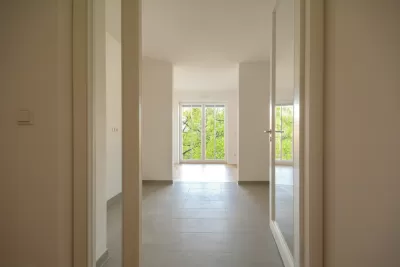All of the nation's largest metro areas are experiencing sharp growth in costs and demand for rental housing, posing even more challenges for low-income renters.

Rent prices, along with demand, are continuing to rise sharply in cities across the U.S. While markets like Phoenix and Boise have seen some of the sharpest spikes, writes Patrick Sisson, "[i]t’s a nationwide phenomenon that’s having a significant impact on housing markets, affordability and access."
All 100 of the nation's largest metro areas have experienced "month-over-month rent growth over the last five months, according to Apartment List economist Christopher Salviati," while Zillow data shows a national increase of 11.5% since last August. Unlike the residential housing market, which spiked early in the pandemic, says data journalist Jeff Andrews, "[t]he rental market is more of a slow matriculation. It takes a while for that backlog of renters to build up who should have cycled out of the market."
This growth coincides with the end of many eviction moratoriums and the end of expanded unemployment benefits. "Landlords are raising rents, and those getting back into the housing market have been shocked by the sharp increases from just a year ago." Meanwhile, "instability is rampant" and "[e]very open unit is flooded with multiple applications." Recipients of rental assistance vouchers are falling even further behind as higher-income renters enter the market and drive up demand.
"Today’s renters are impacted by the echo of the temporary but significant slowdown in new construction after the Great Recession. Those units, unbuilt due to a pause in construction, would have provided more slightly older and affordable options." Although multifamily construction is happening at a rapid pace, much of it caters to high-income renters.
"Salviati says that Apartment List data shows the vacancy rate slightly rising and growth rate slowing, so prices may stop accelerating at such a rapid clip, but there’s no indication prices will reverse, suggesting the affordability issues this rapid rent increase causes will be an ongoing concern."
FULL STORY: What’s Driving the Huge U.S. Rent Spike?

Planetizen Federal Action Tracker
A weekly monitor of how Trump’s orders and actions are impacting planners and planning in America.

Congressman Proposes Bill to Rename DC Metro “Trump Train”
The Make Autorail Great Again Act would withhold federal funding to the system until the Washington Metropolitan Area Transit Authority (WMATA), rebrands as the Washington Metropolitan Authority for Greater Access (WMAGA).

The Simple Legislative Tool Transforming Vacant Downtowns
In California, Michigan and Georgia, an easy win is bringing dollars — and delight — back to city centers.

The States Losing Rural Delivery Rooms at an Alarming Pace
In some states, as few as 9% of rural hospitals still deliver babies. As a result, rising pre-term births, no adequate pre-term care and "harrowing" close calls are a growing reality.

The Small South Asian Republic Going all in on EVs
Thanks to one simple policy change less than five years ago, 65% of new cars in this Himalayan country are now electric.

DC Backpedals on Bike Lane Protection, Swaps Barriers for Paint
Citing aesthetic concerns, the city is removing the concrete barriers and flexposts that once separated Arizona Avenue cyclists from motor vehicles.
Urban Design for Planners 1: Software Tools
This six-course series explores essential urban design concepts using open source software and equips planners with the tools they need to participate fully in the urban design process.
Planning for Universal Design
Learn the tools for implementing Universal Design in planning regulations.
Smith Gee Studio
City of Charlotte
City of Camden Redevelopment Agency
City of Astoria
Transportation Research & Education Center (TREC) at Portland State University
US High Speed Rail Association
City of Camden Redevelopment Agency
Municipality of Princeton (NJ)





























